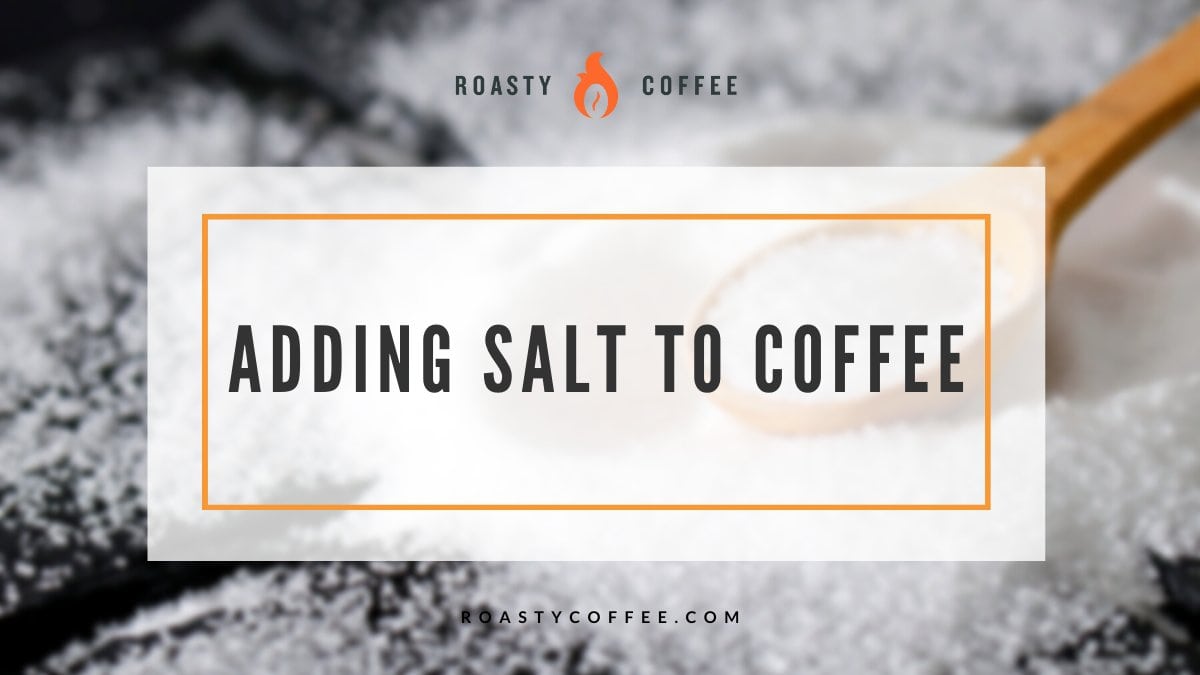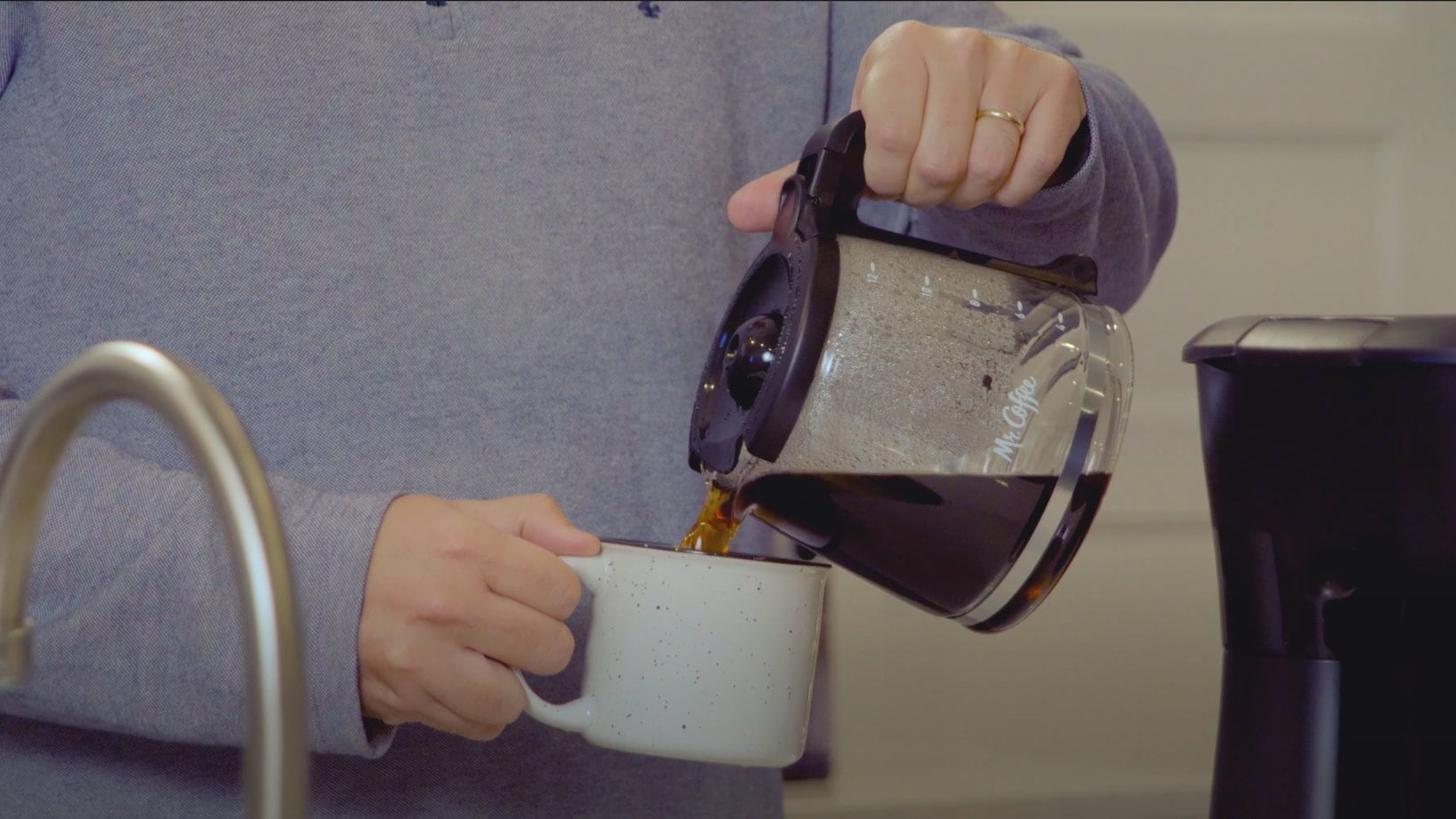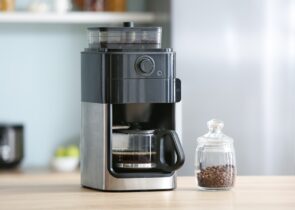We don’t like to yuck someone else’s yum here at Roasty but rather approach new coffee trends with curiosity and find out what’s behind the hype.
Between butter, Nitrogen, and eggs, salt might be the tamest thing we’ve seen people throwing in their daily coffee besides sugar.
And no, we aren’t talking about mistakenly tapping in some crystals from the wrong shaker on the table. People are deliberately putting salt in their coffee. And we’re here to tell you why.

Why Add Salt?
The story goes that adding salt to a cup of coffee will supposedly cut the bitter coffee taste of the beverage. Additionally, it is said to help negate any staleness.
So, if you’re trying to make sure you’re getting the most out of your coffee grounds, this might be just the thing for you.
Whether you’re trying to spruce up an underwhelming brew or improve your own supply, adding salt could potentially improve your coffee routine.
The Science
You might be wondering exactly how it works- salt in coffee? Well, let’s begin with some information on your tongue.
That’s right, the salt does not actually do much to your grounds or brew before you drink the coffee. Instead, it just tricks your brain into ignoring the bitterness. Here’s how:
You probably already know that you have thousands of taste buds on your tongue and that they are responsible for recognizing the 5 basic tastes: sweet, salty, bitter, sour, and umami.
Each of these, except for the bitter taste, is signaled by similar biological mechanisms, and salt (the substance) is able to amplify them.
However, bitterness is signaled in a different way. Your taste buds actually release a calcium ion to signal the taste of bitterness, but salt, instead of amplifying this reaction, actually overrides it. Thus, salt helps to mask the bitterness in coffee.
The Beginning
Surprisingly enough, adding salt to coffee is not exactly a new trend. In Northern Scandinavia, Siberia, Turkey, and Hungary, it has long been a relatively common practice among coffee lovers.
In coastal regions especially, adding salt in the form of brackish water has been a longstanding practice within their coffee culture.
Supposedly, the brackish water creates a foamier, intensified end product. Who knew?!
Grounds or Brew?
As we explained before, the reason salt works is due to its interaction with your tastebuds rather than with the coffee itself. So, it follows that it wouldn’t matter whether you put the salt in the grounds or the brew itself as far as its effect.
However, the problem arises of whether you want a salty coffee flavor. We’re betting most people would rather avoid such a taste.
There are plenty of coffee and cooking experts (including Alton Brown) that recommend adding salt to your grounds before brewing. Proponents of this method recommend adding 1/4 teaspoon of salt to every 6 tablespoons of ground coffee.
Supposedly adding it to the grounds helps ensure that you don’t taste the saltiness while still helping reduce the bitter flavor or staleness.
However, sometimes you can’t add salt to the grounds because you aren’t the one brewing your coffee. So, does it still work if you add it in after the fact?
The short answer is yes, it will address the bitterness. However, the trade-off is this will result in a salty coffee taste.
Health Benefits

Whether you’re adding salt in coffee grounds or an already brewed cup of coffee, you are adding sodium to the mix. This increases your sodium intake for the day, even by a smidge.
Although we aren’t dieticians or doctors, adding another source of sodium as a regular thing to your diet will increase your daily sodium intake.
Although the recommended amount of salt to add to your grinds is a small fraction of a teaspoon, it is still an increase.
Having a diet that is high in sodium content can lead to health complications such as high blood pressure, stroke, or heart disease.
Be aware of the risks of a high-sodium diet and assess those risks and your own lifestyle before making salt in your coffee a habitual thing.
So, Should You Add the Salt?
As far as we can see the best circumstances to try adding salt to your coffee are as follows:
Your beans/grounds are over-roasted or too dark.
It’s totally possible that you’re working with coffee that’s a little out of your taste preference.
If that’s the case, adding a bit of salt to your morning cup of joe could help mitigate the issue. That way, you won’t have to toss out perfectly drinkable coffee.
Your coffee is going stale.
As we mentioned, adding salt also helps combat staleness. So, if you’re not keen on tossing out what you have left in your stash, try adding a bit of salt!
You aren’t a cream and sugar fan, and you’ve been served a subpar cup.
We’ve all been there. You NEED that caffeine fix, but can’t get to any of your go-to’s, so you settle for something you wouldn’t normally drink.
Most people stick to trusty cream and sugar; however, not everyone finds that to be a suitable alternative.
If that’s the case, try throwing in a bit of salt to make your cup a bit more sippable. Just keep in mind that you will probably be able to taste it.
You just REALLY like salt.
No judgment here; we all have our taste preferences! So, if you’re someone who just adores the taste of salt, far be it from us to stop you from adding it to your coffee.
The lack of bitterness will probably be an added bonus for you, but be aware of your sodium consumption as well.
Our Takeaway
Honestly, there are plenty more ways to make sure you are brewing good coffee than adding extra sodium. If you’re looking to improve your at-home brew, here are a few tips to keep in mind to help you produce a high-quality coffee taste:
- Make sure your beans are fresh. If you know you can’t get through the bulk size before they go bad, consider going with smaller bags. We also recommend buying whole beans and grinding them yourself to help with freshness.
- Buy quality beans. If your coffee starts out low-quality, salt isn’t going to magically make it better. If you have a primarily Robusta blend and it’s not cutting it, consider switching to something with a more complex flavor profile.
- Check the water. The water you’re brewing with is important. If your tap has a lot of minerals or other particles, consider filtering it. As well, ensure you’re not burning your grounds with water that’s too hot or under-extracting them with something lukewarm.
- Check your equipment. Whether it’s dirty, old, or simply being used incorrectly, make sure you’re using good equipment. Otherwise, you won’t get good coffee.
As far as trying to fix a botch cup outside of your home, we personally prefer to just stick with sugar and creamer. However, if you prefer it black and can’t get over the bitterness of a meh brew, then try the salt trick and see if it works for you!
Happy Caffeinating!







